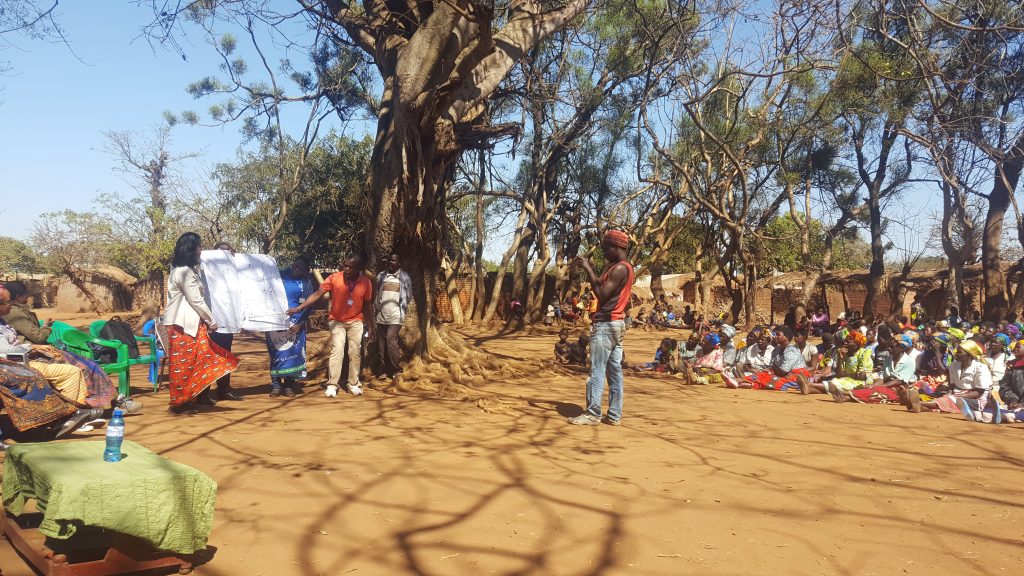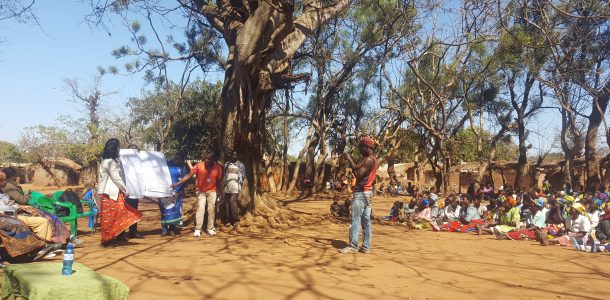– Lessons learned from BRECcIA Summer School in Malawi
Chengxiu Li, University of Southampton
When the plane landed in Lilongwe airport at 12:20 on 7th July 2019, I was very excited but also nervous on my summer school journey organised by project BRECcIA from the University of Southampton and the Malawi institutions. I started on my path to learning and exploring challenges around food and water security in Mitundu County.
The summer school was organised in a very innovative way, which provided space for early career researchers to explore issues and further develop research questions relevant to food and water security at the Chankhuntha and Chinsamba village. Working in a team with a very interdisciplinary background, equipped with various instruments such as kits for measuring water and soil properties, guided by local experts and interpreters, we interviewed local communities, researched water quality in boreholes and walked along transect to explore farming systems. All these activities enabled the group to work towards research questions and more importantly cultivating research skills in an interdisciplinary setting.

Everyday I learned new things and experienced a culture very different from my own; I got the impression that what I learned out in the field during the one week Summer School is much more than three months reading in the office. For the first time, I saw boreholes that were surrounded by ladies and children fetching water for domestic usage and touched the mulch used to protect the soil and keep its moisture, which definitely added additional understanding of my research work and offered personal and emotional connections to the BRECcIA project.
As time passes by, the Summer School memories fade away slowly, however, one thing I observed which will stick in my head, was the community bonding in the village.
Our visit was a big event for village members, we saw almost the whole village, youth, elder, men, women, even kids were off from school to get together to welcome us and find out what brought us to the village. The village members were so connected to each other, you could feel it when you see how they sit together, how they engaged with our activities; bringing chairs and setting up sitting mats; cooking for us; organizing female and male groups for interview; and preparing dances and drum performances. Having mainly lived in cities where people live their lives more independently from each other, I was moved by the closeness and trust among village members.
The close relationship between village members offers a good basis for working together to address food and water issues, which is key for improving community resilience to shocks and disturbance.
A very good example given by Professor Joy Obando from Kenyatta University was that women worked together in Kenya to save money for small business activities like organising transport or investing, which provided financial and social security. Better understanding and taking advantage of existing strong social bonds and trust among communities will also help to implement interventions successfully.
I was brought up to appreciate that “Unity is strength”, meaning that working together and trusting each other will empower the community for pursuing a better life quality. After the Malawi Summer School trip, I believe the spirit of unity and working collectively will help communities in Malawi to cope with food and water security challenges and enhance resilience.

